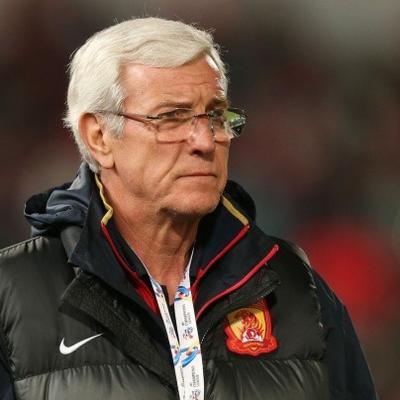Marcello Lippi at a Glance
- Categories: Athletes, Athletes > Soccer Players
- Net Worth: $30 Million
- Birthdate: Apr 12, 1948 (76 years old)
- Birthplace: Viareggio
- Gender: Male
- Profession: Coach
- Nationality: Italy
- Height: 6 ft (1.83 m)
Marcello Lippi: Net Worth, Career, and Legacy in Soccer
Early Life and Playing Career
Marcello Lippi, a celebrated figure in the world of football, was born in Viareggio, Italy, in April 1948. His journey in the sport began as a defender. He honed his skills in the youth ranks of Viareggio, laying the foundation for what would become an illustrious career. Lippi’s playing career spanned from 1969 to 1982, during which he showcased his talents in various clubs across Italy. His notable club stints include Sampdoria (1969-1979), with a loan spell at Savona (1969-1970), Pistoiese (1979-1981), and Lucchese (1981-1982). While his playing career may not have reached the same heights as his managerial achievements, it provided him with invaluable experience and a deep understanding of the game from a player’s perspective.
Managerial Career: A Journey of Triumphs
After hanging up his boots, Lippi transitioned seamlessly into management, embarking on a career that would etch his name in football history. He started his managerial journey with the Sampdoria youth team from 1982 to 1985, nurturing young talents and developing his coaching philosophy. Over the next few decades, Lippi’s managerial prowess took him through various Italian clubs. His journey included Pontedera (1985-1986), Siena (1986-1987), Pistoiese (1987-1988), Carrarese (1988-1989), Cesena (1989-1991), Lucchese (1991-1992), Atalanta (1992-1993), and Napoli (1993-1994). Each stint contributed to refining his tactical acumen and leadership skills. His most significant successes came with Juventus, where he led the team to multiple Serie A titles (1994-1999, 2001-2004) and a Champions League title. A brief period managing Inter Milan (1999-2000) preceded his return to Juventus. Arguably the pinnacle of his career was leading the Italian national team (2004-2006, 2008-2010) to victory in the 2006 FIFA World Cup. He later managed Guangzhou Evergrande in China (2012-2014), where he achieved significant domestic success, further showcasing his adaptability and managerial brilliance. Throughout his career, Lippi was known for his tactical flexibility, ability to build strong team dynamics, and an unwavering commitment to winning. He is revered for his ability to inspire players and get the best out of them, making him one of the most respected figures in the history of football.
Lippi’s Net Worth and Financial Success
Marcello Lippi’s net worth is estimated to be around $30 million, a testament to his successful career as a player and, more significantly, as a manager. His financial success is a result of the lucrative contracts he signed with top-tier clubs and national teams, combined with endorsement deals and other business ventures. The high demand for his coaching services, particularly after his World Cup triumph, allowed him to command substantial salaries. His strategic moves, such as the move to manage in China, further diversified his income streams. Lippi’s ability to consistently deliver results, coupled with his charismatic persona, made him a highly marketable figure in the football world. His financial success reflects not only his skill but also his ability to navigate the business side of professional football, securing lucrative deals and maximizing his earning potential. He has successfully leveraged his brand, becoming an icon in the sport and a wealthy individual.
Lippi’s Legacy and Influence
Marcello Lippi’s legacy extends far beyond his impressive net worth and trophy cabinet. He is remembered as one of the most influential managers in football history, known for his tactical innovation and ability to build winning teams. His success with Juventus, where he established a dynasty, and his triumph with the Italian national team in the 2006 World Cup are highlights of his career, inspiring generations of players and coaches. Lippi’s coaching style, emphasizing defensive solidity, tactical flexibility, and strong team spirit, has influenced numerous managers. His ability to adapt to different leagues and cultures, as demonstrated by his success in China, further solidified his reputation as a global coaching icon. His induction into the Italian Football Hall of Fame is a fitting tribute to his contributions to the sport. Lippi’s impact is visible in the way teams play, in the emphasis on tactical preparation, and in the pursuit of excellence that he has always embodied. He leaves behind a legacy of success, innovation, and leadership that will continue to resonate within the football world for years to come.

